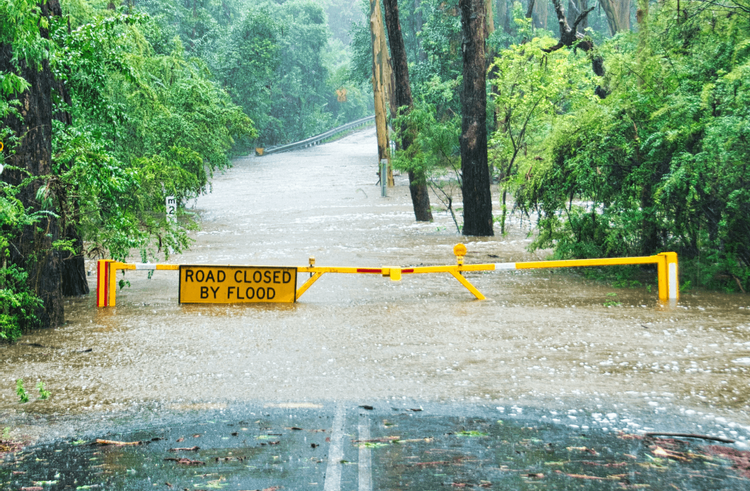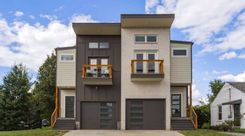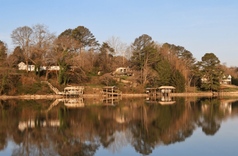Uncover the Truth About Buying a House in a Flood Zone


by Tyler Forte
When you think of your future home, flooding can seem like your worst nightmare. The increasing flood risk and devastating floods in Nashville’s recent past can make homebuyers even more apprehensive about committing to a new home. While hunting for homes in Nashville, it’s important to understand how common floods are and how the flood zones are defined. To help you better understand the risks, precautions, and frequency of Nashville flooding, we’ve sorted out the details you need to make an informed decision regarding buying in a flood zone.
A flood zone is an area designated as high-risk for floodings. These often lie along waterways and nearby bodies of water such as lakes. Nashville has many flood zones throughout the city. Approximately 5% to 10% of Nashville’s landmass could be considered flood zones or flood plains.
Is It Ok To Buy A House In A Flood Zone
The word flood leaves many people quaking in their boots. However, if you’re purchasing a house in a flood zone, you know what you’re getting into and can prepare accordingly.
If your property is in an area that FEMA designated as high-risk or a “Special Flood Hazard Area,” the likelihood of the property flooding is at a 1% annual chance. Additionally, the chances of the property flooding during a 30-year mortgage is 26%.
These odds go down to a 0.2% chance for properties deemed moderate or minimal flood risk zones.
Of course, the weather isn’t the only cause of structural issues and damage during intense rainfalls. Keeping current with your home maintenance, such as unclogging your gutters and running downspout extenders can reduce the chances of water intrusion. Keeping your street’s storm drains clear also allows water to flow down and away from your property (you can even adopt a storm drain). Building a rain garden can help keep water away from your home and other structures.
The most important thing is that you know the liabilities involved with living in a flood zone or flood plain and prepare accordingly.
Is It Harder To Sell A Home In A Flood Zone
Selling a home in a flood zone poses a unique challenge. This challenge becomes even more prominent following local floods as well as major flood disasters that make national news.
Often sellers in flood zones wind up selling at discounted rates to compensate for the buyer’s risk. The discounted price also offsets the cost of the buyer’s flood insurance.
There are strategies that can help flood zone homeowners sell their homes. Some of the most successful include:
- Offering to cover part of the buyer’s flood insurance cost for the first year.
- Use a Comprehensive Loss Underwriting Exchange (CLUE) report if the property hasn’t flooded in the past 7 years. This can build confidence in the buyer that flooding is a relatively rare problem.
- Proactively install flood protection measures and demonstrate that you have kept up with water management-related maintenance.
- For homes at the margins of a floodplain or flood zone, challenge your flood designation. This will take 60 days but could make a major difference in the value and status of your home.
How Do I Assess The Home's Flood Risk
Working with an experienced, local realtor with a successful track record can make a major difference when it comes to buying (or selling) a home in a flood zone. They can also assist you in navigating the unique risks of properties you’re interested in.
FEMA as well as Metro Nashville make it easy to determine if your home or a potential home you want to buy is in a flood zone. If it appears on the FEMA Floodplain and Floodway Map as solid blue or has diagonal stripes, the property is located in a floodway or floodplain. You can also perform a search directly on the FEMA website by entering the property’s address.
A floodplain is an area where water is likely to back up and sit should the floodway struggle to move the full volume of water fast enough. A floodway is an area where water actively flows should the area experience flood levels of rainfall. Both areas are considered high-risk flood zones.
You can also check Davidson County’s tax records. When you check the tax record, you will see any property that falls in a flood zone is labeled as such.
Will I Need Flood Insurance
One of the easiest ways to determine if you are required to carry flood insurance is to check the Federal Emergency Management Agency (FEMA) Floodplain and Floodway Map. If your home appears within a floodplain or floodway, you will need to purchase flood insurance.
Homes just outside that area still have a 0.2% chance of flooding. Furthermore, every home does carry some risk of flooding.
However, homes that are beyond the designated flood zones can still benefit from flood insurance should they experience extended rainfall and water damage. Standard homeowners insurance will cover some kinds of storm damage, but insurance companies are hard-pressed to cover water intrusion, foundation repair, and other water damage if a property does not have flood insurance.
Will My Homeowner's Insurance Be More Expensive
Your homeowner’s insurance will cost more for a home in a flood zone. This is simply because you have more coverage. How much more does it cost to carry flood insurance? This depends on:
- Your property’s exact flood risk
- What coverages you have on your policy (for example, your home and outbuildings)
- The age of the home
- How your home was designed
- Where your home is located on the property (for example, was your house build nearer or further to the floodway)
- Are your home’s contents protected from water
How To Estimate Homeowner's Insurance Costs
The average homeowner’s insurance in the U.S. costs $1,631 annually, according to NerdWallet, and Tennessee homeowners pay about $36 more per year than the national average. The median flood insurance cost for Tennessee residents is about $860 per year.
So, you can estimate that your homeowner’s insurance will run you about $2,000 per year, plus or minus a few hundred, depending on your level of coverages and deductible.
Why It’s Important To Use An Experienced Real Estate Agent When Buying A Home
An experienced real estate agent is vital in making an informed decision in the home buying process. Not only can a qualified agent make the home buying process easier, but they can inform you of the flood risks of a property. A realtor that is familiar with the area where you are house hunting can give you insight into the history of the area, including past issues with flooding. They will also talk you through the process of making a fair offer on a home based on flood risk factors and insurance costs.
Understanding Nashville’s Flood Zones And Risk
The Cumberland River is a treasure in Nashville. It is one of the reasons this city became a hub for trade and industry. Unfortunately, this river that defines the city is also prone to flooding (along with its tributaries). In fact, it’s difficult to find a neighborhood that hasn’t experienced flood or flood-like conditions over the past twenty years. In 2010, the Cumberland River filled with excessive rainfall and spilled over its banks, causing a great deal of destruction. More flooding followed in 2017 in northern Nashville neighborhoods as creeks brimmed over and caused residents to evacuate. And in 2021, neighborhoods in South Nashville and Brentwood saw the water rise, and thousands of homes were damaged by floodwaters.
Should You Buy A Home In A Flood Zone
Living on or near the water is often a dream for home buyers, but the presence of water can also become a danger during prolonged downpours. Because Nashville is traversed with creeks, rivers, and other waterways, finding a home beyond the risk of flooding can be challenging. However, areas designated as flood zones have been known to flood, historically. This is why homes within a flood zone require flood insurance.
Flooding continues to be the most common disaster in the U.S. and Nashville. Using a qualified realtor with experience in the neighborhood where you are looking is key to identifying flood risk. Learn more about why Felix Homes is the right choice for buying or selling your Nashville home.
About Felix Homes
Felix Homes is where five-star service meets low commissions! To date, we've saved our clients $1,610,738 in commission fees and have earned 120 five-star reviews on Google!
How are we able to offer five-star service AND lower commission fees? It's simple:
- We're an independently owned brokerage – not a franchise which allows us to keep more of the commission we earn.
- By offering a lower commission, more folks want to work with us which means we close more deals. By closing more deals, we can pass more savings along to our customers!
Still not convinced? Read all about our low-commission mission here.
If you have any questions about the state of the market or the home buying/selling process, please feel free to contact us at contact@felixhomes.com or 615-354-5731.




